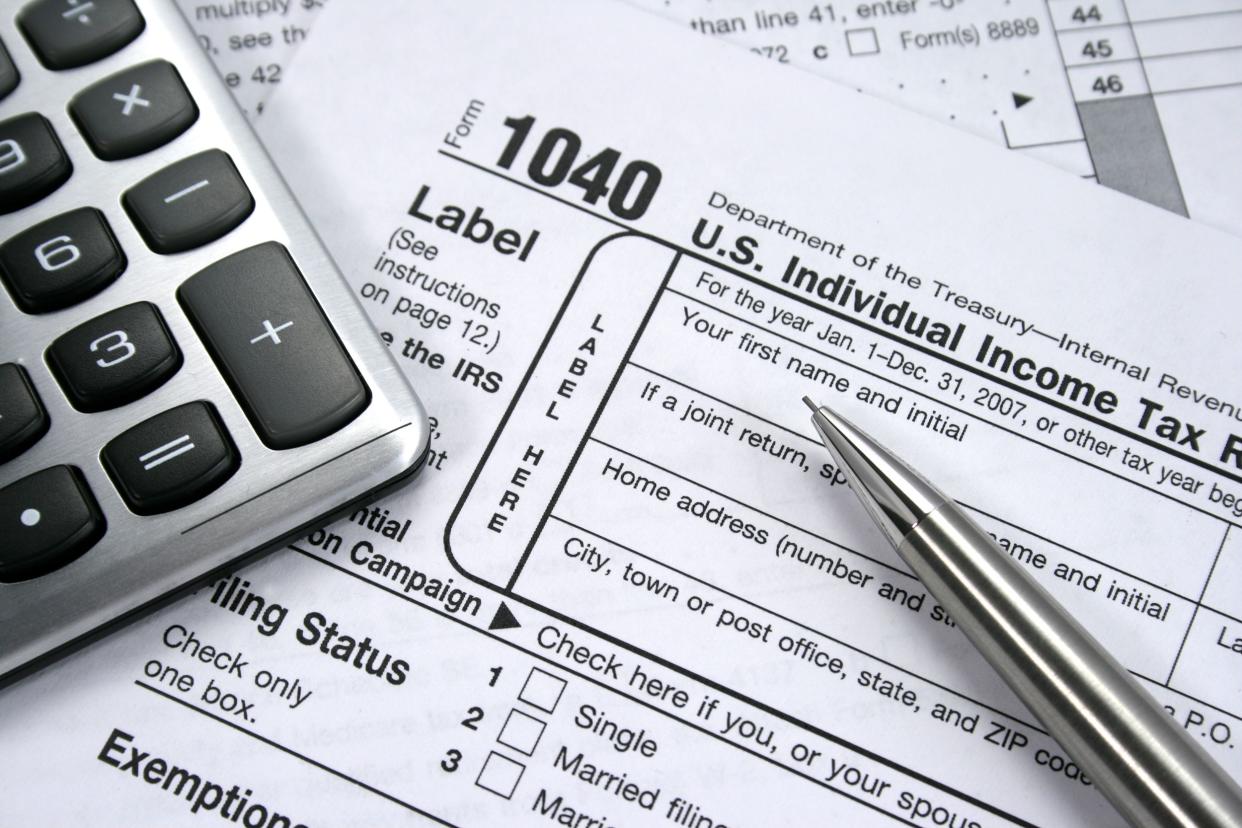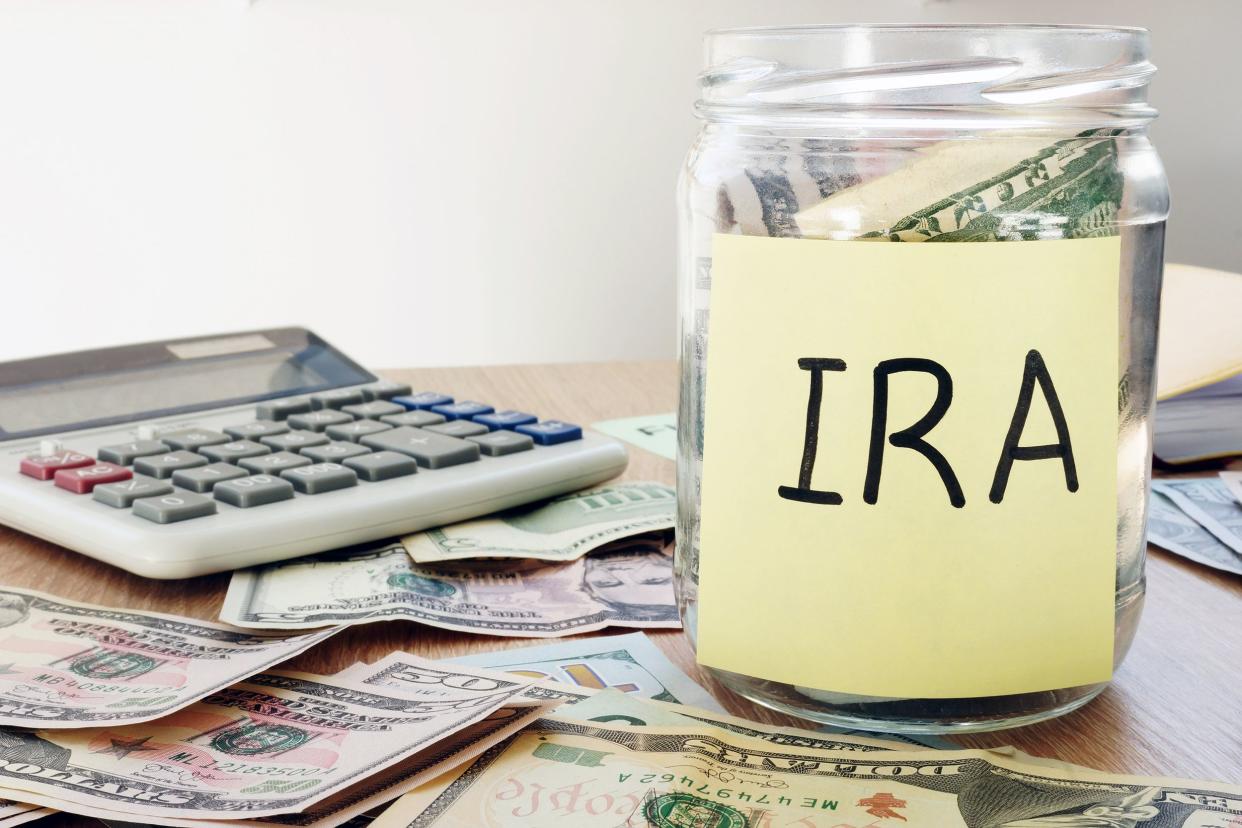20 Valuable Tax Breaks for Seniors

With age comes wisdom … as well as certain tax breaks. While seniors often face lower income and higher expenses (think health care and assisted living), there are also numerous federal and state rules aimed at easing their tax burden. After 2017's Tax Cuts and Jobs Act, the coronavirus pandemic also brought significant changes for most filers. Here are some tax breaks and tips to remember during the golden years.
Related: Best Perks for Seniors in All 50 States

The standard deduction got a slight bump to keep up with inflation, and is now $12,950 for single taxpayers and $25,900 for married couples. Seniors still get a bit of a bump. Single taxpayers 65 and older can deduct an additional $1,750; for couples, the increase is $1,400 if both spouses are 65 or older.
Related: Why You Might Not Need a Tax Pro

Every state has some sort of property-tax benefit for seniors (often referred to as a homestead exemption), although the eligibility age varies. Six states freeze property taxes completely for seniors and 10 states have assessment freezes that limit how much a property's tax value can increase. Also, the homestead exemption can be larger when a homeowner reaches a certain age. (The larger the exemption, the lower the tax.) In Colorado, seniors 65 and older can exempt up to 50% of their residence's first $200,000 in value. In Alabama, taxpayers 65 and older are exempt from the state portion of their property tax.
Related: Watch Out for These Scams Targeting Seniors
For more great senior living tips, please sign up for our free newsletters.

Some states let senior taxpayers exclude quite a bit of income before taxes kick in: up to $65,000 in Georgia. New Jersey has a deduction that allows married residents to exclude up to $100,000 of retirement income. In Rhode Island, special income tax exemptions or deductions for retirement income might go up to $15,000 — for those who are eligible.
Related: Secrets to Help Retirees Save Money

In 37 states and the District of Columbia, Social Security benefits are not taxed, either because there is no state income tax or because Social Security is subtracted from federal adjusted gross income. At the federal level, if income is under $25,000 for a single person or $32,000 for a couple, Social Security benefits are taxed up to 50%. Above that, 85% of those benefits are taxed, depending on income.

Nine states — Alaska, Florida, Nevada, South Dakota, Tennessee, Texas, Washington, and Wyoming — exempt all individual income from taxes. In New Mexico, people over 100 don't have to pay state taxes on any income.

In 12 of the 41 states that have an income tax, military and usually government and civil service pensions are exempt. In addition, 24 states offer at least a partial exemption of pension income.
Related: Great Jobs for Retirees

Married couples 65 and older with income (not including Social Security) under $27,400 do not have to file a federal return at all. The limit is $26,100 if one spouse is under 65, and $14,050 for individuals.
Related: Ways Retirees Waste Money

People looking toward the future can take advantage of this tax break before they retire. It's a tax credit toward the first 50%, 20%, or 10% of $2,000 ($4,000 filing jointly) that's put into a retirement account, such as an IRA or an employer's retirement plan. Eligibility depends on income level, with the credit aimed at low- to moderate-income taxpayers. Those with the lowest income receive the biggest credit.
Related: Benefits of Growing Old

Most people are not too worried about the high ceiling of the estate tax. There are plenty of good reasons to give away assets before death, though, even for people of more modest means. Federal law now allows people to give away $16,000 to an individual each year. So, people with five grandchildren can give away up to $80,000, or $16,000 to each of them each year.
Related: Reputable Charities to Help

People 65 and older can deduct medical and dental expenses — potentially huge for seniors — that total more than 7.5% of their adjusted gross income from 2021. These expenses include devices like wheelchairs or hearing aids, in-home nursing or caregiving, and prescribed nutritional supplements. To claim the deduction, taxpayers must itemize, which may no longer be advantageous because of the increased standard deduction.
Related: Reduce Your Health Care Costs With These Expert Tips for Seniors

Medicare Part B premium payments are considered a medical expense. The same goes for prescription plan premiums under Medicare Part D. Since this money comes out of pocket, it's also deductible.
Related: SNAP and Other Low Income Relief Programs for Seniors

Selling a principal residence for a profit to move someplace smaller, or warmer, does not have to incur capital gains taxes. The Internal Revenue Service allows a profit of up to $500,000 for a married couple.
Related: For Seniors: How to Decide When to Move From Your Home

Seniors 65 and older with income less than $25,000 if married filing jointly or $17,500 if filing individually can get a tax credit of $3,750 to $7,500. This credit also applies to people who had to retire before age 65 because of a disability.
Related: Where Your Federal Income Tax Money Really Goes

Seniors can now contribute up to $7,000 (rather than $6,000 for those under 50) to a traditional IRA, as long as they are not withdrawing funds. They might (depending on income) get a tax deduction for that contribution.
Related: Smart Investments to Make

Tax- and penalty-free withdrawals from a Roth IRA can begin at age 59.5 as long as the account has been held for at least five years. The money wasn't tax-deferred when it was contributed, but the interest or other income from the account is tax-free when withdrawn.

Money invested in a 401(k) with a former employer can be rolled over to an IRA, which has several benefits, such as increasing your investment options. If the employer cuts a check to you, rather than to the IRA, though, that counts as income and will be taxed, and the employer will be required to withhold 20% for taxes.
Related: Types of Retirement Accounts to Help Build Your Nest Egg

Retirees living off their investments get some breaks. Interest income, dividends and capital gains on investments are taxed at a lower rate than regular income, generally 20%, 15% or not at all. And expenses related to investing, like accounting fees, online brokerage fees, and fees to financial planners can be deductible.

Giving back can pay. People who itemize deductions can deduct cash contributions to qualified charitable organizations that equal up to 50% of adjusted gross income. Another option is that they can make an above-the-line tax deduction for gifts of cash to charity of up to $300 for individuals and up to $600 for joint filers. A senior who is clearing out their house can also deduct the fair-market value of any goods they donate to charity. But be careful — if the IRS finds that you’ve overstated charitable tax deductions (and underpaid your tax liability), you may be assessed a penalty of 50% of your total deduction amount, up from a 20% fine previously.
Related: Places Where the Rich Hide Money From the IRS

Seniors looking to help finance their grandkid's education can also get a tax break for themselves with 529 savings plans. Under old laws, a tax-advantaged 529 plan could be used only at eligible colleges and universities. Those plans can now cover $10,000 per year of qualifying expenses for any school and any grade from kindergarten through high school — public, private, and religious institutions included. Existing 529 plans also can be rolled over into ABLE 529 plans for people living with disabilities and for the education of children with disabilities.
Related: Best Money-Saving Tax Tips for Each State

It used to be that home equity debt of up to $100,000 was deductible. Many seniors whose mortgages had been paid off took advantage of that deduction to take out low-interest loans for a variety of reasons — but now the money has to go toward “buying, building, or substantially improving” the home for there to be any deduction.
Related: Refinancing Your Home: Should You or Shouldn't You?

The AARP Foundation is offering free tax prep to low- and moderate-income seniors (age 50 and up). This help is available at nearly 5,000 locations nationwide, and AARP lists the documents you will need to bring with you.
